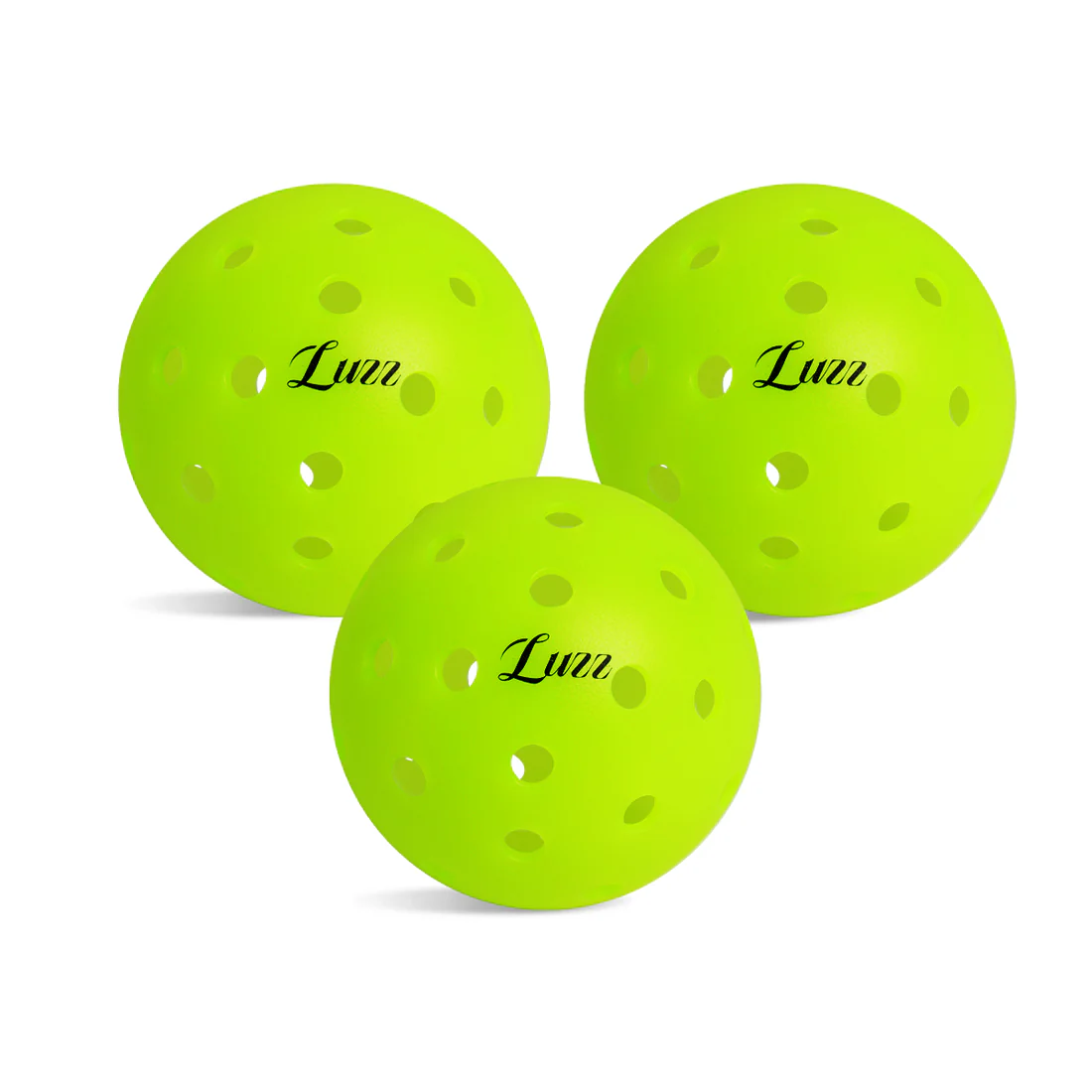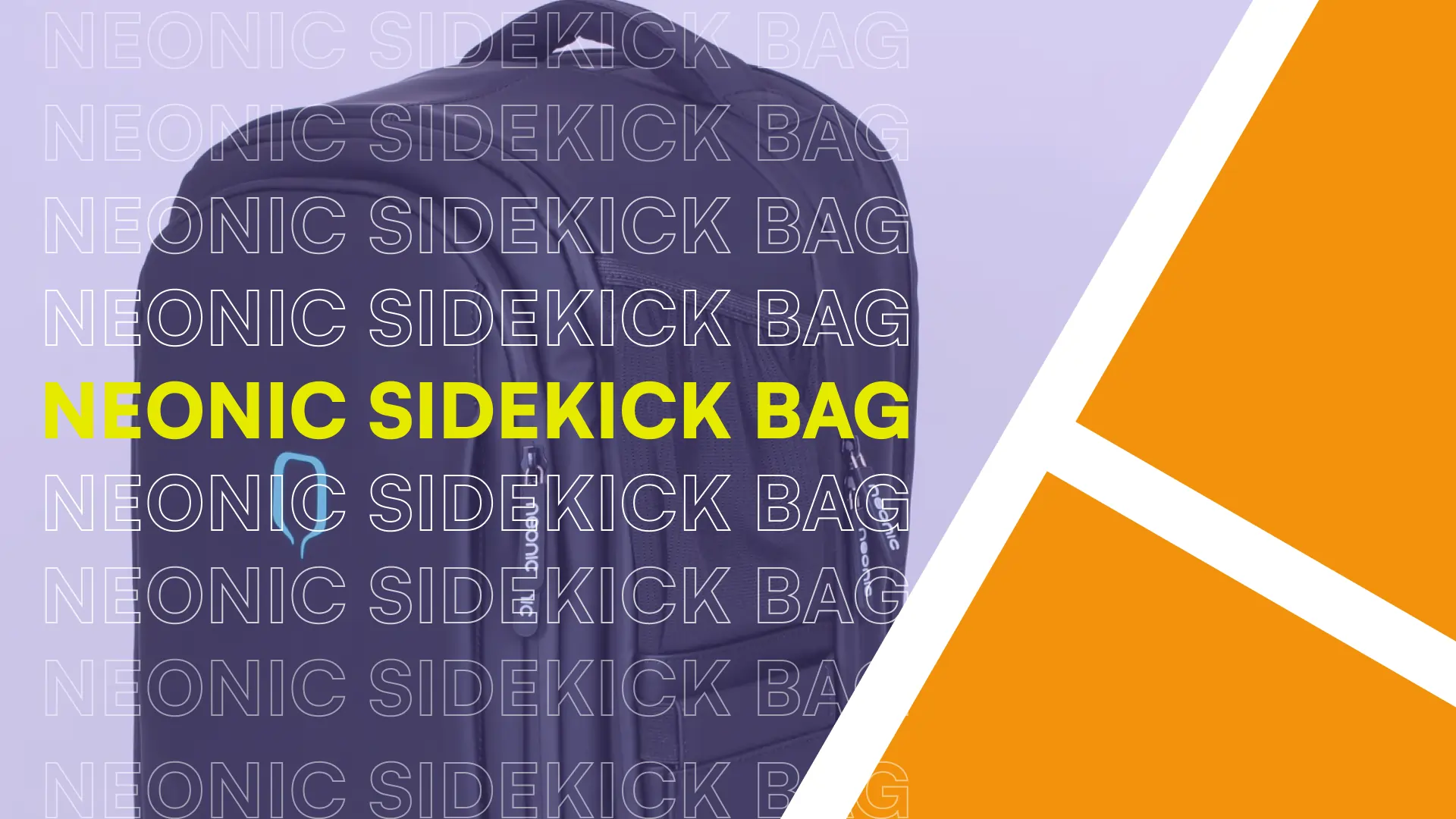Why is Pickleball Called Pickleball? [Full History]

Pickleball was invented in the summer of 1965 on Bainbridge Island, Washington. It began when three dads – Joel Pritchard (a state legislator, later U.S. congressman), Bill Bell, and Barney McCallum – improvised a new game to entertain their bored children. Pritchard had a backyard badminton court, but no shuttlecock or proper rackets on hand, so the group lowered the net, grabbed some ping-pong paddles, and found a perforated plastic ball (a Wiffle ball) to volley with. Over the next days and weeks, they fleshed out rules and crafted sturdier paddles, creating a sport that was easy to learn, fast-paced, and fun for all ages. This family pastime quickly caught on with friends and neighbors, laying the groundwork for what would become the rapidly growing sport of pickleball.
How “Pickleball” Got Its Name
Once the game took shape, the inventors realized it needed a name. According to the Pritchard family, the name “Pickle Ball” was coined by Joel Pritchard’s wife, Joan Pritchard, in that first summer of 1965.
As the story goes, one day the Pritchards and Bells were sitting around brainstorming ideas when Joan suggested “Pickle Ball,” explaining her inspiration came from the term “pickle boat” in crew (rowing) races. In rowing, a pickle boat is a crew made up of leftover oarsmen from other boats – often the last and mismatched team to race for fun. Joan, who had watched collegiate crew races, thought this was an apt metaphor: their new game was a mix of “leftover” pieces of other sports (badminton, tennis, and table tennis) thrown together, much like a pickle boat crew.
The quirky name “Pickle Ball” struck a chord and stuck. (In the early years it was sometimes written as two words or hyphenated as “Pickle-Ball,” but eventually evolved into the single word “pickleball” that we use today).
From its humble start as a backyard experiment, pickleball has always been about creativity and fun. The Luzz Pickleball Set keeps that same backyard spirit alive three durable, 40 hole balls that make it easy to rally, experiment, and enjoy the game wherever you play.
Use code 11PICKLES for 15% off and start strong.
Pickles the Dog vs. the Pickle Boat – The Naming Debate
Despite Joan Pritchard’s clear pickle boat explanation, an alternate origin tale emerged: that pickleball was named after a dog. In the Pritchards’ extended family, a cocker spaniel/cockapoo puppy named “Pickles” joined them a few years later, around 1968.
According to legend, Pickles the dog would chase errant balls during games and hide with them, and some believed this inspired the sport’s name. In fact, co-inventor Barney McCallum and the neighboring Brown family long insisted that the game was named after Pickles the dog – they even recalled a specific night at the Pritchard cabin when everyone cheered the idea to honor the ball-stealing puppy
This charming story became popular and was widely retold over the years.
However, the pickle boat origin has been consistently upheld by the Pritchard family and backed by historical evidence. Notably, Pickles the dog did not even exist when the game was named – the puppy was acquired three years after pickleball’s invention.
“We didn’t get the dog for another three years,” confirms Frank Pritchard (Joel and Joan’s son), so “it was not named after the dog."
Joan Pritchard herself set the record straight in a newspaper interview, saying:
“Pickles wasn’t on the scene for two more years. The dog was named for the game, but stories about the name’s origin were funnier thinking the game was named for the dog.”
In other words, the family named their puppy after “Pickle Ball” the game – not the other way around.
So how did the beloved “dog story” take hold if it wasn’t true? The mix-up can be traced back to a lighthearted decision by Joel Pritchard in the late 1960s. As pickleball started gaining local popularity, a reporter from a national publication interviewed Joel about the new sport.
Joel first explained Joan’s pickle boat reasoning. Then, perhaps sensing the quirky potential, he jokingly offered the reporter an alternate anecdote – that they named it after their dog, Pickles. The reporter preferred this playful version, finding it “cuter and more memorable” (whereas the crew reference required more explanation).
Joel went along with the suggestion to use the dog story in that article, quipping to friends, “Don’t worry, it’s just a funny story. It will never stick.”
Stick it did. The dog-as-namesake tale spread and became part of pickleball lore, much to Joan’s chagrin. For years, Joel Pritchard and Barney McCallum often repeated the Pickles the dog story in interviews and to curious newcomers.
“You can imagine how upset my mother was about that decision,” Frank Pritchard said of Joan’s reaction.
In time, Joel admitted in later interviews that the pickle boat origin was the true one, giving Joan credit for the name, but Barney McCallum “to his dying day” held onto the dog story as the origin. This dual-story phenomenon created a lasting debate: some early witnesses earnestly recalled the dog inspiration, while the family and official accounts emphasized the rowing term origin.
A Quirky Name That Stuck
From the beginning, “pickleball” stood out as a peculiar name for a sport – after all, there are no pickles involved. The quirky name often prompts curiosity and questions, which is exactly why the early magazine reporter preferred the dog anecdote as a more colorful explanation. Yet, the very novelty of the name likely helped it stick in people’s minds. Over time, what might have seemed like a whimsical inside-joke became an indelible part of the sport’s identity.
In the 1970s and 1980s, as the game spread beyond Bainbridge Island to PE classes, community centers, and retirement communities, the unique name piqued interest and usually came with a fun backstory in tow. There was never a serious push to rename the game to something more conventional – by the time official organizations formed (the first rulebook was published in 1967, and the USA Pickleball Association in 1984), “pickleball” was already the accepted moniker. The spelling did gradually standardize (early on it was often “Pickle-Ball” or “Pickle Ball,” but today it’s officially one word, pickleball). Minor confusion aside, the distinctive name became a branding strength rather than a weakness.

Over the years, the sport’s explosive growth has turned “pickleball” into a household word – one that often makes people smile. Many players affectionately embrace the name’s silliness, sporting pickle-themed team names, T-shirts, and endless puns (calling the sport a “big dill,” for example). At the same time, those hearing it for the first time almost inevitably ask, “Why is it called pickleball?” – opening the door to share the game’s origin story.
Now that the true history has been well documented, enthusiasts can confidently explain that pickleball isn’t named after a pickled cucumber or just a family pet – it harkens back to a rowing term and a creative mom’s idea on a summer day in 1965
“Pickles” the dog – a family cockapoo adopted by the Pritchards in 1968 – often stole the ball during games. While charming, the myth that the sport was named after Pickles is just a myth. The dog was actually named after the game, not vice versa.
In summary, pickleball’s name reflects the sport’s patchwork beginnings and the playful spirit of its founders. Joan Pritchard’s reference to a pickle boat captured the essence of a game cobbled together from odds and ends, and that unusual name proved memorable. A cute canine caper may have added to the lore, but credible historical accounts – backed by family recollections, written records, and even the timing of one mischievous puppy – affirm that the sport we know as pickleball drew its name from the “leftovers” of a rowing race, not from man’s best friend.
In the end, the light-hearted name has become an integral part of the game’s charm and history, celebrated by the millions who play it today.
From its humble start as a backyard experiment, pickleball has always been about creativity and fun. The Luzz Pickleball Set keeps that same backyard spirit alive three durable, 40 hole balls that make it easy to rally, experiment, and enjoy the game wherever you play.
Use code 11PICKLES for 15% off and start strong.
Pickleball and 11 Pickles – A New Chapter in the Sport’s Legacy
Today, pickleball is more than just a sport—it’s a cultural movement. As the game has exploded in popularity, so has the need for a vibrant and insightful platform dedicated to the sport. That’s where 11 Pickles comes in. 11 PICKLES is the ultimate hub for all things pickleball, offering the latest news, player insights, equipment reviews, and expert strategies to help both new and seasoned players improve their game.
Just as the quirky name “pickleball” stuck, 11 PICKLES embraces the spirit of the game while elevating its storytelling and community engagement. Whether you’re a casual weekend player or a serious competitor, 11 PICKLES delivers engaging, high-quality content designed to inform and inspire. Shop our store!








